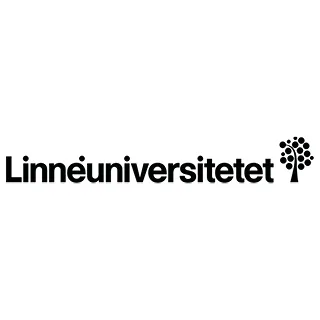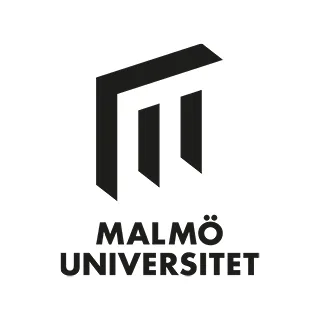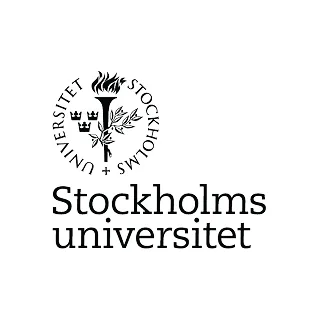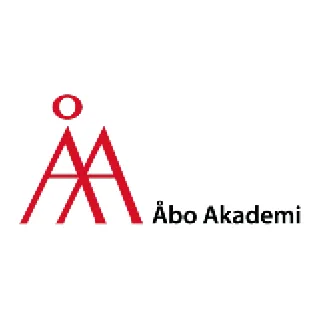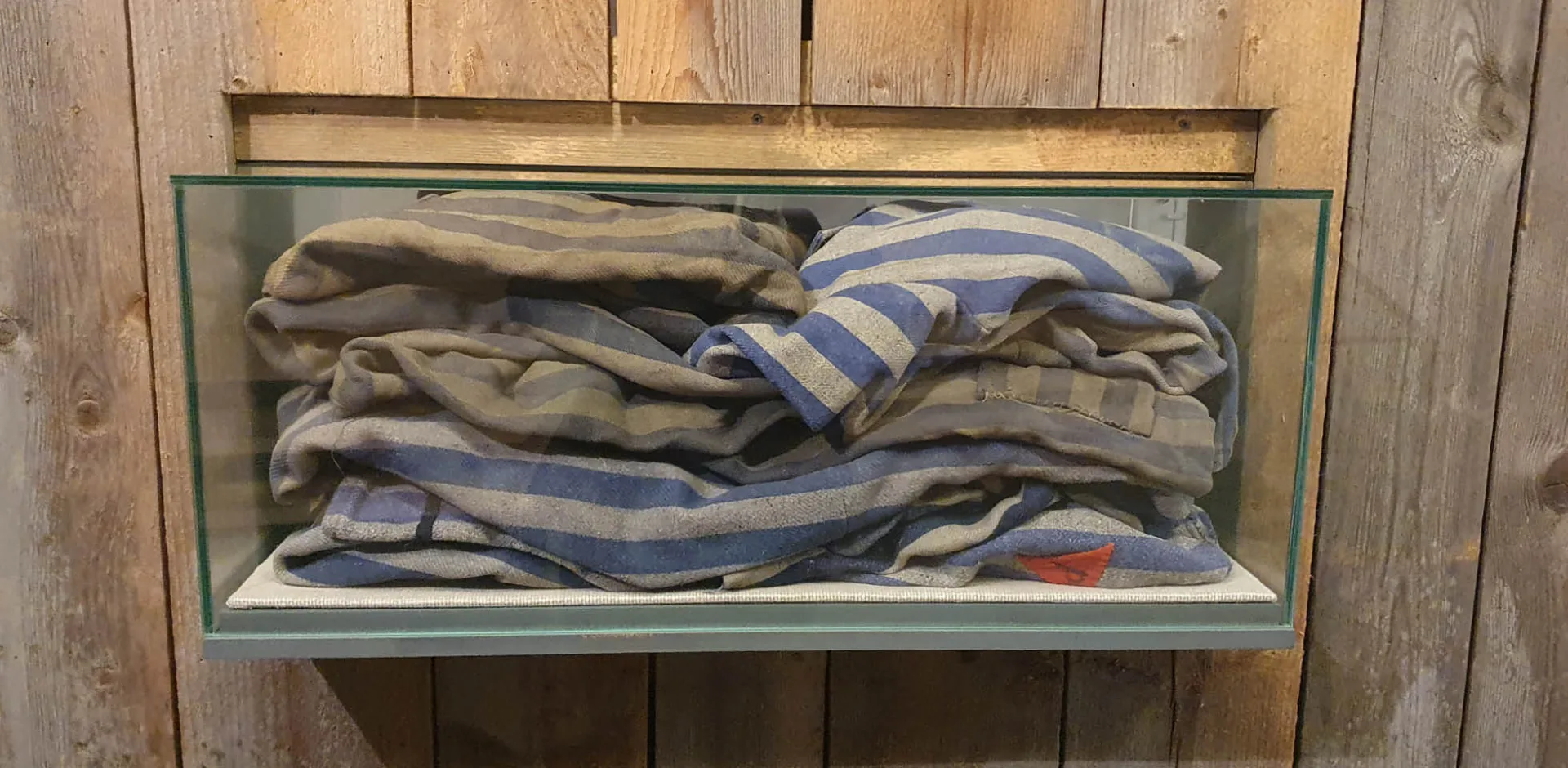Collecting the Holocaust: Ethics, Memory, and Materiality offers cultural heritage sector professionals and scholars from various disciplines an opportunity to explore the assembly of material and immaterial, human and non-human agents involved in collecting and managing materials related to the Holocaust and to engage in discussions about ethics, methodological challenges, and political dimensions of Holocaust heritage.
Important dates and information
- Call for papers is closed.
- Registration is closed.
Conference Fee (includes lunch):
- University researchers: Senior – 1000 SEK | PhD students – 500 SEK (+ tax)
- GLAM professionals and private individuals: 500 SEK (+ tax)
Conference programme
Day 1: 25th of November
Location: Sveriges Museum om Förintelsen/The Swedish Holocaust Museum
Address: Torsgatan 19, floor 5
16:00–17:30 Registration and refreshments
Mingle and Exhibition
17:30–18:00 Welcome & Introduction
18:00–19:00 Keynote: Rebecca Jinks & Christine Schmidt - “Just write my name as ..”: Collecting and Curating Genocide at the Wiener Holocaust Library
Day 2: 26th of November
Location: Historiska Museet/The Swedish History Museum
Address: Narvavägen 13
8:30–9:00 Registration
09:00–10:30
A: The Ethics of Curating the Holocaust
Chair: Britta Geschwind
- Liv Nilsson Stutz - The Multidimensional Liminality of the Materiality of Human Remains in Holocaust Collections
- Dan Stone - In(ani)mate Objects: Between the Sacred and the Everyday
- Barnabas Balint - Archiving Animals: Material traces of non-human animals during the Holocaust
- Hannah Wilson - Reflections on “Forensic Restitution” and the Ownership of Memory at Sobibor Death Camp
B: Methodological Challenges in Collecting the Holocaust
Chair: Rebecka Katz Thor
- Andrej Kotliartchouk - Methodological Challenges in Collecting, Interpreting and Presenting of the source material related to the Roma genocide survivors
- Mirah Langer - Donor Panels and Bequests as ‘Small’ Storytellers in Holocaust Museums
- Joanna Bakoń - Tracing Affective Memory: Gendered Perspectives on Mixed Families in Holocaust Narratives from Occupied Poland (1939-1945)
- Ewa Koźmińska-Frejlak - The First Researchers of the Holocaust and the Assumptions Regarding the Collection of Materials on the History of Jews During the German Occupation
10:30–10:45 Coffee break
10:45–12:15
A: The Ethics of Curating the Holocaust
Chair: Liv Nilsson Stutz
- Victoria Van Orden Martinez - Affective Collecting: Ethics, Emotions, and Collecting the Holocaust
- Adrienne Baars - Embroidered names – Nearly forgotten women prisoners in the Second World War
- Jennifer Putnam - Collecting What is Already There: Prisoner Graffiti in Ghettos and Camps
- Björn Magnusson Staaf - The Rediscovery and Commemoration of Sites related to Danish-Jewish refugees and the Reception of Holocaust Survivors in Scania, Southern Sweden
B: Methodological Challenges in Collecting the Holocaust
Chair: James Bulgin
- Malin Thor Tureby, Kristin Wagrell & Emma Hall - The Ethics of Collecting the Holocaust: Formalizing Jewish Ethical Thinking and the Pressures of Vulnerability
- Charlie Knight - Reconciling Absence: Incompleteness in the Archives of German-Jewish Refugees
- Sandra B. Weiss - Collecting Holocaust and Collecting Holocaust research
12:15–13:15 Lunch Break
13:15–14.45
A: Political Dimensions of Holocaust Heritage
Chair: Kristin Wagrell
- Markus Idvall - Photography as a Swedish Holocaust heritage: Political and ethical aspects
- Monika Vrzgulová - After the Communist Regime: Memory Institutions and the Holocaust in Slovakia.
- András Szécsényi - Collecting Practices and Strategies on the Personal Heritage of the Holocaust in Hungary
B: Methodological Challenges in Collecting the Holocaust
Chair: Fredrik Nilsson
- Santiago López Rodríguez - “A Matter Between Jews and Germans”: Spain, Portugal, and Holocaust-Related Records
- Friedemann Derschmidt and Revital Arbel - Negotiating Collective Memories
- Agnieszka Witkowska-Krych - Naming the Ghetto
- Karin Kvist Geverts and Lars M Andersson - Hugo Valentin as cicerone to Sweden and the Holocaust
14.45–16:30 Coffee Break & Poster Session
Presentations: Swedish Holocaust Museum, Lund University Library Archive and Ravensbrück Archive, Kulturen in Lund
16:30–17:30
Keynote: Erica Lehrer – Do We Need to Decolonize Holocaust Museums?
19:00 Dinner at the Royal Armory
Slottsbacken 3, Stockholm
Day 3: 27th of November
Location: The Swedish History Museum
Address: Narvavägen 13
9:00–9:30 Coffee & mingling
09:30–11:00
A: Political Dimensions of Holocaust Heritage
Chair: Malin Thor Thureby
- Britta Z Geschwind - “Seven Lives” and the newly established Swedish Holocaust Museum
- Cailee Davis - Decentering the Holocaust: Emergent Memorial and Museological Practices
- Jay Prosser - The Jewish Elgin Marbles: Who Owns The Salonican Shoah Shoe Soles?
- Matylda Jonas-Kowalik - The Politics of Remembering: Polish-Jewish Holocaust Survivors in Swedish Memory Culture
B: The Ethics of Curating the Holocaust
Chair: Insa Eschebach
- Małgorzata Wosińska - The Limits of the Empirical Turn. Anthropological Aspects of Vulnerable Post-Holocaust Heritage in Warsaw
- Lisa Peschel - The Body of The Actor as Material Object: Staging Plays from The Theresienstadt Ghetto
- Idit Gil - Methodological Reflections Through Two Holocaust Artifacts: Unraveling the Story of Prisoner-Made Cigarette Boxes
11:00–11:15 Coffee break
11:15–12:15
Keynote: Robert M. Ehrenreich - The Material Culture of the Holocaust: Issues, Challenges, and Opportunities
12:15–13:30 Lunch
13:30–15:00
A: Political Dimensions of Holocaust Heritage
Chair: Matylda Jonas-Kowalik
- Joni Wallin Lämsä - Making Sources Speak - Secondary Witnessing in Scandinavian Holocaust Literature
- Danielle Wirsansky - Performing the Holocaust: Artistic, Ethical, and Political Challenges in Contemporary Theatre
- Mitchell Smolkin - Memory in Superposition: Holocaust Artefacts and the Ethics of Interpretation
- Ekim Diren - Holocaust Analogies in Memory Activism
B: Methodological Challenges in Collecting the Holocaust
Chair: Markus Idvall
- Florence Fröhlig and Domino Kai - Decolonizing methodologies: A pilot of Collaborative Collecting Practices
- Therkel Stræde - The Remnants of a Rescue: October ’43 in material culture and testimony
- Niamh Hanrahan - A Kimono in the USHMM: Collecting and Connecting Jewish Refugee Histories
15:00–15:15 Coffee break
15:15–16:15
Panel discussion: Ethical Challenges in Curating the Holocaust
- James Bulgin. Head of Public History at the Imperial War Museum, London, and former Head of Content for the Imperial War Museum’s Holocaust Galleries.
- Insa Eschebach. Cultural scientist and visiting scholar at the Institute for Religious Studies, Free University of Berlin. Former Director of the Ravensbrück Memorial Museum.
- Annemiek Gringold. Chief Curator of the National Holocaust Museum/ the Jewish Cultural Quarter in Amsterdam.
- Katty Hauptman. Director of the Swedish Holocaust Museum. Former Director of the Swedish History Museum and former Chair of ICOM Sweden.
Moderator: Rebecka Katz Thor
16:15–16:30 Closing Remarks & Thanks
Theme of the Conference
The Holocaust's shifting and competing meanings in contemporary society highlight the importance of discussing ethical and sustainable methods for collecting, curating, and presenting Holocaust memories and underline the challenges associated with ensuring responsible accessibility and use of these materials to the public and researchers. The conference addresses the ethical implications of collecting and curating materials related to the Holocaust for museums and other heritage institutions. It will focus on three thematic topics:
- The Ethics of Curating Holocaust Materiality
- Methodological Challenges in Collecting the Holocaust
- Political Dimensions of Holocaust Heritage
Keynote speakers
- Rebecca Jinks, is a historian of modern genocide and humanitarianism at Royal Holloway, University of London. She approaches genocide and its aftermath from a social and cultural historical angle, and is interested in the experiences and actions of ordinary people (within the context of state violence or humanitarian operations), in gender histories, and in how we can use photographs and non-standard sources to gain deeper or different insights into historical processes and events. Her recent AHRC-funded project, ‘Genocidal Captivity: (Re)telling the Stories of Armenian and Yezidi Women Survivors’, explores the experiences and representation of Armenian women during and after the 1915 genocide in the Ottoman empire, and Yezidi women during and after the 2014 genocide by ISIS.
- Christine Schmidt, is the Deputy Director and Head of Research at The Wiener Holocaust Library, London, where she leads on academic partnerships and curates collaborative exhibitions, including ‘Genocidal Captivity: Retelling the Stories of Armenian and Yezidi Women Survivors’ with Rebecca Jinks, among other initiatives and co-curated exhibitions. A social historian of the Holocaust, Schmidt has focused on post-World War II tracing and documentation efforts, gender, migration, and the concentration camp system in Nazi Germany, as well as collaboration and resistance in France and Hungary. She has a particular interest in the ethics of curation and display, trauma-informed heritage practice, and the history of archives.
- Robert M. Ehrenreich, is the Director of Academic Research and Dissemination at Jack, Joseph and Morton Mandel Center for Advanced Holocaust Studies, United States Holocaust Memorial Museum. His primary research focuses on the material culture of the Holocaust, the transdisciplinary study of the things that people created, hid, obtained, and repaired to provide insights into their lives and this history. He is co-editing a forthcoming book on the subject, Objects of Atrocity: Material Culture and the Challenges of Difficult Histories, and contributing a chapter, “Talisman, Trophy, or Testament: Holocaust-Era Mica from the Theresienstadt Glimmerwerke.” Dr. Ehrenreich is also examining the application of digital humanities methodologies and AI to the future of Holocaust research and memory.
- Erica Lehrer, is a sociocultural anthropologist and curator, presently Professor in the History Department at Concordia, Montreal. She is also Founding Director of the university's Curating and Public Scholarship Lab (CaPSL).Her Research areas are Memory/Heritage/Museums, Jewish-Polish Heritage, Decolonial Museology in East Central Europe. She is also the principal investigator for the international team project, Thinking Through the Museum: A Partnership Approach to Curating Difficult Knowledge in Public.
Keynote Rebecca Jinks and Christine Schmidt
Title: “Just write my name as █.█.”: Collecting and Curating Genocide at the Wiener Holocaust Library
In 2024, Rebecca Jinks and Christine Schmidt co-curated an exhibition, Genocidal Captivity: Retelling the Stories of Armenian and Yezidi Women. It was displayed at the Wiener Holocaust Library, one of the oldest institutions that has continuously collected about the Holocaust since the Nazi period. Building on our experience of curating the exhibition and the Library’s long history of collecting, we reflect on the relationship of vulnerable communities to the institutions that work to collect and safeguard their stories. First, we will discuss the methodologies and the ethics of collecting eyewitness accounts, including the Library’s efforts from the 1930s to the 1950s, and Jinks’s approaches to conducting oral histories with Yezidi survivors in 2023. Second, we will address issues of archival access, including how institutions address ongoing vulnerabilities. And third, we will discuss our research and curatorial approaches to issues of voice, authorship, and survivors’ control over how their stories are retold.
Keynote Robert M. Ehrenreich
Title: The Material Culture of the Holocaust: Issues, Challenges, and Opportunities
Holocaust material culture has been wielded in various ways over the past 80 years, from serving as proof of Nazi war crimes, to evincing the magnitude of loss of human life, to restoring the humanity of victims and survivors. These uses tend to skew the collecting and exhibiting of Holocaust material, however. The desire to meaningful connect with institutional constituencies lead many local, regional, national, and even transnational Holocaust museums to try to place the larger history within their local, regional, national, or international contexts. Their curators thus focus on obtaining objects and documents that detail the histories and stories of the survivors and liberators within their catchment areas. These items are then supplemented with non-local objects, including perpetrator material obtained via donation, loan, or purchase, to present the broader historical timeline. The collections of many institutions are thus eclectic, providing a narrow view of the Holocaust and limiting their use in the development of deeper understandings of the history. The recent increase in the meticulous archaeological investigation of Holocaust sites presents opportunities to expand our knowledge of the history. Recovering materials from their original context allows a deeper, more nuanced understanding of the lives of the prisoners – including their networks, interactions, and survival and resistance strategies – than is possible from historical documentation and survivor testimony alone. The assemblages obtained present many logistical, ethical, and political challenges to our current collecting, exhibiting, and researching practices, however, from the designing of judicious survey plans that ensure human remains are not disturbed; to the securing of required permits and resources to properly survey the sites and conserve and store the artefacts; to the curating and exhibiting of objects in culturally sensitive manners; to the identification of the appropriate stewards of this history – the sites from which they were recovered or the descendants of the original owners. This presentation will discuss some of the cultural, ethical, and political dimensions related to the collecting, exhibiting, and researching of Holocaust objects within museum and archaeological contexts.
Keynote Erica Lehrer
Title: Do We Need to Decolonize Holocaust Museums?
A central issue animating and transforming the museum sector today is the call for decolonizing museums. A movement to illuminate the ways these institutions supported Europe’s overseas colonial projects by framing relations among peoples, (often unethically-sourced) things, and larger worlds in oppressive cultural hierarchies, it also calls on these institutions to redress past violence and reform the ongoing present-day damage done by their legacies. The call to decolonize museums began with Indigenous activists, whose communities have been overwhelmingly hurt by the museum sector’s history and status quo. Museums of mass violence – Holocaust museums, paradigmatic among them – have been largely exempt from decolonial critiques. As products of 20th and 21st-century social justice mandates and often created at the behest of survivor communities, they seem at first glance not to be obvious targets for such scrutiny. Yet, Holocaust museums are not free from entanglements with state power nor from inherited traditions and infrastructures of museum practice with their attendant biases, exclusions, and silences. This talk explores the potential value of decolonial museum theories and practices for Holocaust museums to renew and expand their social justice mandates, with attention to issues such as collections provenance, care, ownership, and restitution; display of human remains; and depictions of diverse victim groups, among other concerns.
Panel discussion: Ethical challenges in Curating the Holocaust
Discussants:
- James Bulgin. Head of Public History at the Imperial War Museum, London, and former Head of Content for the Imperial War Museum’s Holocaust Galleries.
- Insa Eschebach. Cultural scientist and visiting scholar at the Institute for Religious Studies, Free University of Berlin. Former Director of the Ravensbrück Memorial Museum.
- Annemiek Gringold. Chief Curator of the National Holocaust Museum/ the Jewish Cultural Quarter in Amsterdam.
- Katty Hauptman. Director of the Swedish Holocaust Museum. Former Director of the Swedish History Museum and former Chair of ICOM Sweden.
Conference venues
The opening night and inaugural keynote, on November 25, will be held at the newly established Swedish Holocaust Museum, allowing attendees to view its exhibitions. The main part of the Conference on November 26–27 will take place at the Swedish History Museum: Presentations, additional keynotes, panel, and a poster session with invited museum partners of the network project “On Collecting the Holocaust, ethics, museums and materiality”. On the final day, a panel featuring museum professionals and scholars will address the “Challenges of Collecting the Holocaust”. The conference dinner for presenters of papers and posters will be held at the Royal Armory Museum near the royal castle.
Contact
If you have any questions, please contact conference@shm.se
The conference is financed by three research projects funded by the Swedish Research Council: “Collecting the Holocaust in Sweden: Collections and Ethics”(Dnr: 2022-06183); “The Ethical Dilemmas of Digitalization: Vulnerability and Holocaust Collections” (Dnr: 2021-01428), and “Swedish Remembrance of the Holocaust. Museums, materiality, and Politics” (Dnr: 2022-02011). Organizers: Britta Z. Geschwind (Swedish Holocaust Museum & Lund University); Markus Idvall (Stockholm University); Liv Nilsson Stutz (Linnaeus University); Fredrik Nilsson (Åbo Academi University) and Malin Thor Tureby (Malmö University).
Swedish Holocaust Museum in collaboration with
